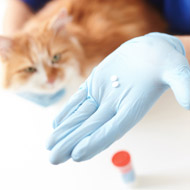Call for responsible prescribing decisions under cascade

Companion animal vets observed the conflict most with prescriptions for dogs, rabbits and cats.
Ahead of World Antibiotic Awareness Day (18 November), the BVA and the VMD are highlighting to vets the importance of making responsible prescribing decisions under the cascade.
The advice comes after BVA’s Voice of the Veterinary Profession’s survey revealed that 60 per cent of vets felt that unquestioningly using the cascade could result in decisions that did not meet the criteria for responsible prescribing.
The survey also found the perceived conflict is apparent across all major practice specialisms. Large animals vets were much less likely to identify it, however, with only 41 per cent observing the issue and 24 per cent seeing it often or sometimes.
Companion animal vets observed the conflict most with prescriptions for dogs, rabbits and cats, while large animal and mixed practice vets observed it most with cattle and sheep. Mixed practice vets said they also experienced it with prescribing decisions for exotics too.
“The cascade provides much-needed flexibility in allowing veterinary surgeons to treat animals in situations where a licensed product for a condition in a particular species is not available in the UK, but we are concerned that it could in some circumstances lead to decisions that could exacerbate antimicrobial resistance,” said BVA president Simon Doherty.
“While there is a legislative requirement to use a UK-authorised veterinary medicine before applying the cascade, there is concern among our members that there are instances where following the procedure could lead to inappropriate prescribing decisions. This is especially true when vets are trying to balance the use of the cascade with the responsible use of critically important antibiotics.
He continued: “With antibiotic resistance a very real and urgent concern, our message to vets is to continue to use their professional judgement, on a case-by-case basis, in considering alternative prescribing options, after giving full consideration to potential risks. A commitment from each of us within the veterinary profession to maintain the highest standards of stewardship in using antimicrobials, most especially CIAs, is the only way we can preserve these essential medicines for future generations.”



 The veterinary mental health charity Vetlife is inviting the veterinary community to join it for a sponsored cold-water dip.
The veterinary mental health charity Vetlife is inviting the veterinary community to join it for a sponsored cold-water dip.